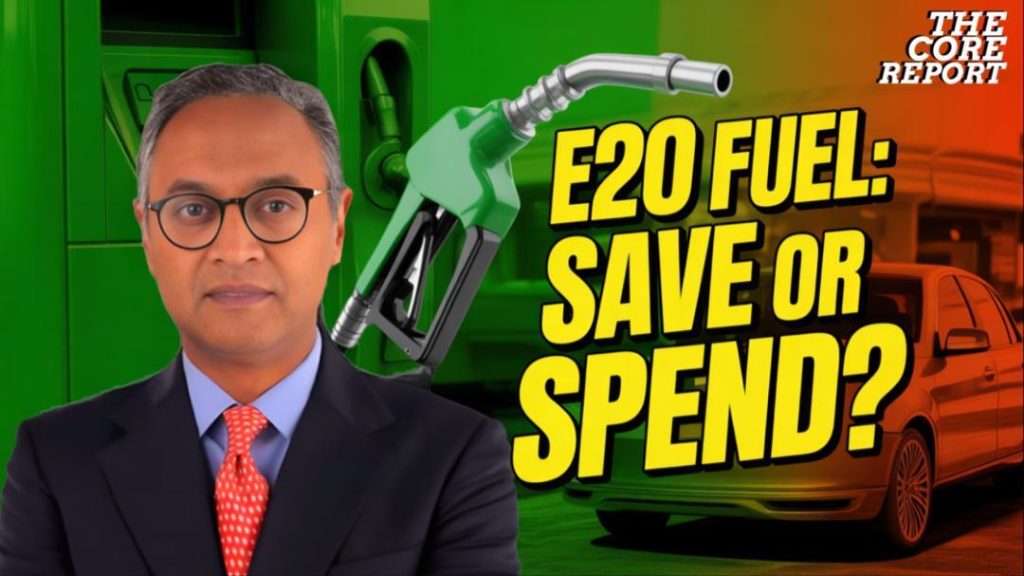
E20 Fuel in India: Benefits, Risks & What Vehicle Owners Must Know
As India continues to strive for a cleaner and more sustainable future, the government has introduced a new fuel blend, E20, which is a mixture of 20% ethanol and 80% petrol. This alternative fuel is aimed at reducing carbon emissions, boosting energy security, and supporting farmers by utilizing agricultural waste to produce ethanol. In this blog post, we will delve into the benefits and risks associated with E20 fuel, as well as what vehicle owners must know to ensure a smooth transition.
Benefits of E20 Fuel
The Indian government has conducted studies on the effects of E20 fuel, and the results are promising. The studies claim that vehicles running on E20 fuel experience improved acceleration, better fuel efficiency, and reduced carbon emissions. In fact, the total greenhouse gas emissions from E20 fuel are reportedly 15-20% lower than those from regular petrol.
E20 fuel also offers an economic advantage, as it is expected to reduce the country’s reliance on imported crude oil. With India being one of the largest consumers of crude oil in the world, this reduction can lead to significant savings for the Indian economy.
Risks Associated with E20 Fuel
While E20 fuel offers several benefits, there are also some risks that vehicle owners must be aware of. One of the primary concerns is that older vehicles may not be designed to run on E20 fuel, which can lead to engine wear, fuel system corrosion, and even mileage loss.
Older vehicles may not have the necessary fuel injection system or engine modifications to handle the higher ethanol content in E20 fuel. This can cause the fuel to break down and lead to issues such as spark plug fouling, fuel pump failure, and even engine damage.
Another risk associated with E20 fuel is the potential for increased maintenance costs. As E20 fuel can be more corrosive than regular petrol, it may require more frequent changes of fuel filters, spark plugs, and other components.
What Vehicle Owners Must Know
As the Indian government plans to make E20 the new standard for all new vehicles by 2025, vehicle owners must take steps to ensure their vehicles are compatible with E20 fuel. Here are some tips:
- Check Your Vehicle’s Compatibility: Before switching to E20 fuel, check your vehicle’s manual or consult with the manufacturer to ensure it is designed to run on E20 fuel.
- Upgrade Your Vehicle: If your vehicle is not compatible with E20 fuel, consider upgrading to a newer model that is designed to run on the new fuel blend.
- Use the Right Fuel Filter: Using the correct fuel filter designed for E20 fuel can help prevent issues such as fuel pump failure and fuel filter clogging.
- Monitor Your Vehicle’s Performance: Keep an eye on your vehicle’s performance and maintenance needs, as E20 fuel may require more frequent changes of fuel filters, spark plugs, and other components.
- Consult with Your Dealer: If you’re unsure about your vehicle’s compatibility or have concerns about switching to E20 fuel, consult with your dealer or a certified mechanic for guidance.
Conclusion
E20 fuel offers several benefits, including improved acceleration, reduced carbon emissions, and economic advantages. However, vehicle owners must be aware of the risks associated with E20 fuel, particularly for older vehicles that may not be designed to run on the new fuel blend.
By taking the necessary steps to ensure compatibility and proper maintenance, vehicle owners can enjoy the benefits of E20 fuel while minimizing the risks. As the Indian government continues to promote the use of E20 fuel, it is essential for vehicle owners to stay informed and take proactive steps to adapt to the new fuel blend.
News Source:






